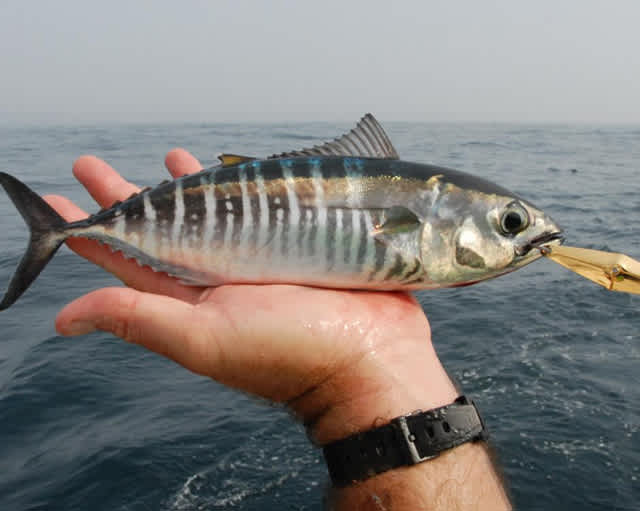Study: Crude Oil Contamination Can Cause Cardiac Arrest in Young Fish
OutdoorHub Reporters 02.18.14

In a recent study, researchers found that crude oil can lead to irregular heartbeats and even cardiac arrest in fish. The study, undertaken by scientists from Stanford University and funded by the National Oceanic and Atmospheric Administration as well as the Monterey Bay Aquarium, suggests that oil spills “could severely affect fish at impacted spawning sites.” Crude oil is especially harmful to juvenile fish.
“At relatively higher concentrations, the effects on a developing fish heart are severe in that the heart muscle cannot do its job, or becomes deformed—those fish will die,” study co-author Nathaniel Scholz told the Los Angeles Times. “As for exposure to lower concentrations, these fish will survive in clean water. But when we look at them later in life, we find they have changes in the shapes of their hearts, with corresponding impacts on their ability to swim.”
Researchers studied the effects of the 2010 Deepwater Horizon oil spill in the Gulf of Mexico, which is one of the world’s most important spawning grounds for Atlantic bluefin tuna. Despite being known as a “superfish,” juvenile bluefin tuna are vulnerable to even small amounts of crude oil contamination. Harmful chemicals in the oil called polyaromatic hydrocarbons can cause heart irregularities and more pronounced health effects at higher concentrations. Through laboratory study on tuna heart samples, the researchers found that these problems were caused by the oil blocking pathways where potassium and calcium ions move from cell to cell. These cellular pathways are vital to a healthy heart.
“What we found was that oil blocked key processes in the cardiac cells involved with linking excitation to contraction, which means that beat to beat, we slowed the heart cells down and we also decreased their contractility,” co-author Barbara Block told the BBC.
Since the Deepwater Horizon oil spill and the following cleanup happened during spawning months for bluefin tuna, the study suggests that the accident may have had a large effect on marine life.
Since the study’s publication in the journal Science last week, BP spokespeople have criticized the report for its lack of information on how oil affects populations of fish, rather than individuals. BP was the operator of the Deepwater Horizon drilling rig during the 2010 spill, which is estimated to have poured upwards of four million barrels of oil into the Gulf of Mexico.

